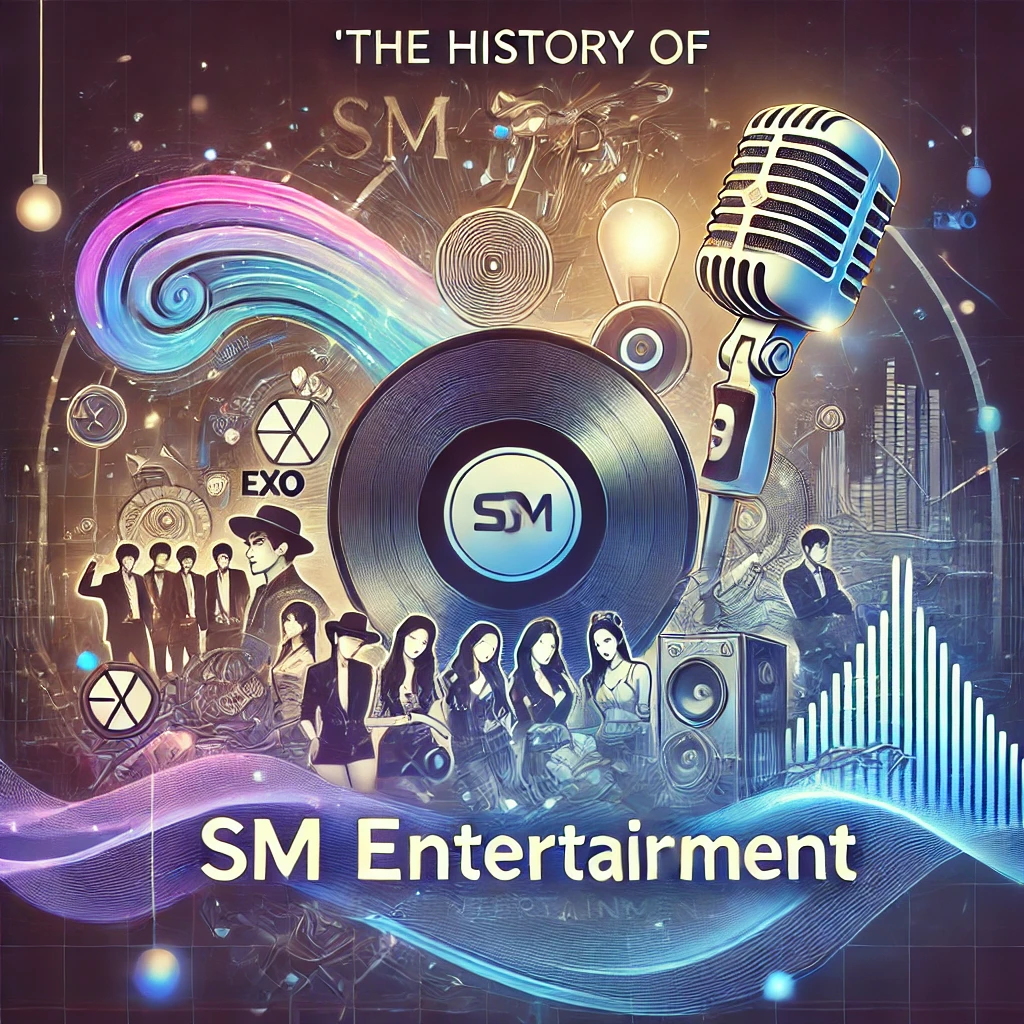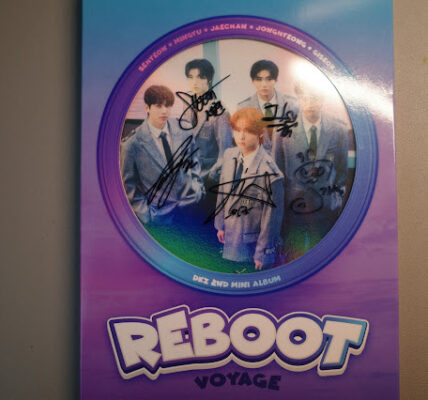“The Rise of SM Entertainment: The Pioneers of K-Pop and Hallyu”
Introduction
SM Entertainment stands as one of the biggest players in the K-Pop industry, often credited as the company that created the blueprint for modern K-Pop and the global Hallyu (Korean Wave) phenomenon. From producing iconic idol groups to shaping the music industry in South Korea, SM’s journey is a story of vision, innovation, and relentless pursuit of excellence. Let’s explore how SM Entertainment became the powerhouse of K-Pop and influenced an entire generation of music lovers.

🎤 The Visionary Behind SM Entertainment – Lee Soo-man
- Lee Soo-man’s Early Days: Before he became the mastermind behind SM Entertainment, Lee Soo-man was a singer and DJ with a passion for music. However, his journey took a turn when he decided to pursue a degree in computer engineering in the United States. During his time there, he was captivated by MTV and the emergence of visual-based music entertainment, realizing that the future of music would be “seen” as much as it was “heard.”
- Establishing SM Entertainment: Inspired by the music scene in the US, Lee Soo-man returned to Korea with a vision to create a new form of entertainment. In 1989, he established SM Entertainment (initially called SM Studio), intending to produce artists who could captivate audiences not just with their music but with their stage presence, fashion, and charisma.
🌟 The Birth of K-Pop Idols
- The Introduction of H.O.T.: SM Entertainment’s first major success came with the debut of the boy group H.O.T. in 1996. H.O.T. became a nationwide sensation, known for their catchy songs, synchronized dance moves, and trendy fashion. They were the first group to be labeled as “idols,” setting the foundation for future K-Pop groups.
- The Girl Group Evolution with S.E.S. and BoA: Building on the success of H.O.T., SM introduced the girl group S.E.S. in 1997, who quickly became trendsetters in the Korean music scene. But it was BoA, who debuted in 2000 at the age of 13, that truly marked SM’s international aspirations. BoA’s success in Japan demonstrated that Korean artists could break into foreign markets, making her one of the first true “global” K-Pop stars.
🎶 Expanding the K-Pop Empire
- Super Junior, TVXQ, and the Growth of Hallyu: The 2000s saw SM Entertainment introduce new acts like TVXQ (2003) and Super Junior (2005), who further expanded the reach of K-Pop across Asia. TVXQ became extremely popular in Japan and China, while Super Junior’s “Sorry, Sorry” gained massive international recognition, solidifying SM’s position as a dominant force in the Hallyu wave.
- Girl’s Generation and the Global Boom: In 2007, Girl’s Generation (SNSD) debuted, becoming one of the most successful girl groups in K-Pop history. Their hit song “Gee” in 2009 broke records and gained global attention, proving that K-Pop was more than just a regional trend.
- EXO and NCT: The Next Generations: The group EXO, launched in 2012, took the world by storm with their unique “twin” concept, promoting in both Korean and Chinese markets simultaneously. Later, NCT (Neo Culture Technology) debuted with a rotating member system, embodying SM’s ongoing pursuit of innovation and adaptability in an ever-changing industry.
💡 What Made SM Entertainment Unique?
- Talent Development and Training: SM was the first to implement a rigorous trainee system, scouting young talent and training them in singing, dancing, language skills, and even social etiquette. This process ensured that their artists were polished, versatile, and ready for the global stage.
- Visual and Conceptual Innovation: SM understood that K-Pop was not just about music but about creating an entire experience. From elaborate music videos to intricate choreographies and fashion-forward styling, SM’s artists became synonymous with high-quality visuals and performances.
- International Expansion: Recognizing the potential of foreign markets, SM was a pioneer in pushing their artists to promote overseas, especially in Japan and China. They also introduced multilingual songs and members, which made their groups more accessible to international fans.
🚀 The Challenges and Controversies
- H.O.T.’s Disbandment and Financial Struggles: Despite their success, SM faced difficulties in the early 2000s when H.O.T. disbanded, leading to financial instability. However, the company managed to recover by diversifying its artist lineup and focusing on new talents like TVXQ and BoA.
- Criticism of the ‘Idol Factory’ System: SM Entertainment’s rigorous training system has faced criticism for being too demanding, with trainees spending years practicing without any guarantee of debuting. This “factory” approach to producing idols led to debates about the mental and physical toll on young artists.
📈 SM’s Contribution to the Hallyu Wave
- Shaping K-Pop’s Identity: SM Entertainment defined the K-Pop “idol” formula, blending catchy pop melodies with dynamic performances, impeccable visuals, and relatable personalities. This formula became the blueprint for countless other agencies, helping K-Pop evolve into the global phenomenon it is today.
- Creating Cultural Bridges: Through collaborations, language adaptations, and international promotions, SM played a pivotal role in bridging cultural gaps and making K-Pop accessible to a diverse audience. This effort contributed significantly to the spread of Hallyu worldwide.
🏆 The Legacy of SM Entertainment
SM Entertainment’s story is not just about a company’s rise but about the evolution of an entire genre. They transformed K-Pop from a local trend into a global cultural movement, laying the foundation for the industry and influencing countless artists and agencies.
As SM continues to innovate, producing newer acts like Aespa, it remains a leader in K-Pop’s ever-growing narrative, constantly pushing the boundaries of what’s possible in music, performance, and global outreach.
Conclusion
SM Entertainment’s journey is a testament to how vision, innovation, and resilience can revolutionize an industry. From pioneering the concept of K-Pop idols to shaping the Hallyu wave, SM has left an indelible mark on the world of music and entertainment. As the company looks toward the future, it continues to be a driving force in the evolution of K-Pop, inspiring fans and artists alike.








